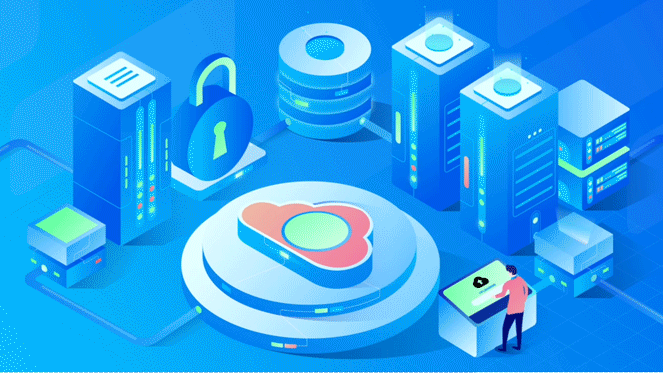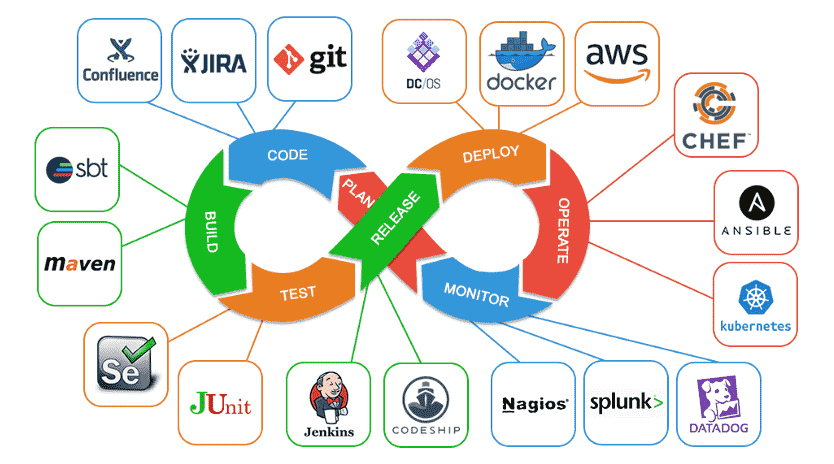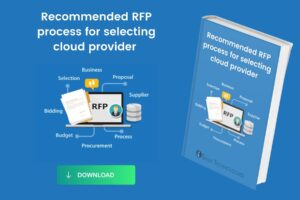In the ever-evolving landscape of technology, the cloud has emerged as a pivotal force, revolutionizing the way businesses operate and store data.
As we step into 2023, the cloud continues to play a central role in shaping the future of IT infrastructure. In this article, we delve into the cutting-edge cloud training trends that are set to dominate the industry this year.
Whether you’re an IT professional looking to upskill or a business owner aiming to stay competitive, understanding these trends is essential for staying ahead in the digital game.

Multi-Cloud Certifications
- The cloud industry is witnessing a surge in multi-cloud adoption. In response, certifications that cover multiple cloud platforms, such as AWS, Azure, and Google Cloud, are becoming increasingly valuable. Professionals who obtain these certifications will be well-equipped to manage diverse cloud environments, making them highly sought after in the job market.
- In addition to traditional single-cloud certifications, multi-cloud certifications are gaining prominence. These certifications acknowledge the need for expertise across various cloud providers. By acquiring skills in multiple platforms, professionals can ensure flexibility and adaptability in an ever-changing cloud ecosystem.
- Moreover, multi-cloud certifications not only focus on technical skills but also emphasize business and governance aspects. This holistic approach ensures that certified individuals can contribute to strategic decision-making within their organizations. In 2023, expect to see a wider range of multi-cloud certification options catering to different roles and expertise levels.
AI-Enhanced Learning
- Artificial Intelligence (AI) is revolutionizing the way we learn, and cloud training is no exception. In 2023, expect to see the integration of AI-driven personalization in cloud courses. This technology will tailor learning paths to individual needs, enhancing engagement and knowledge retention.
- AI-powered learning platforms will analyze a learner’s progress and adapt the course content accordingly. For example, if a learner excels in a particular topic, the platform may suggest more advanced materials. Conversely, if a learner struggles with certain concepts, the platform will provide additional resources and practice exercises.
- Moreover, AI will enable real-time assessment and feedback, allowing learners to gauge their understanding instantly. This not only enhances the learning experience but also accelerates skill development.
- As AI continues to evolve, we can also anticipate the use of virtual AI mentors and tutors in cloud training. These virtual assistants will provide on-demand guidance, answer queries, and offer personalized study recommendations. In essence, AI will make cloud training more engaging, efficient, and tailored to individual needs.
Edge Computing Training
- With the rise of edge computing, there’s a growing demand for professionals skilled in managing and securing edge devices. Cloud training programs will expand to include modules on edge computing, ensuring that IT specialists are well-versed in this emerging field.
- Edge computing, which involves processing data closer to the source, presents unique challenges and opportunities. Training will cover topics such as edge device management, data synchronization, and security protocols specific to edge environments.
- Furthermore, edge computing training will address the integration of edge solutions with cloud and hybrid cloud infrastructures. Professionals will learn how to design architectures that seamlessly combine edge and cloud resources to deliver optimal performance and efficiency.
- In summary, as edge computing gains traction, specialized training will be essential for IT professionals to harness its potential and meet the demands of a decentralized computing landscape.
Security-Centric Training
- As cyber threats continue to evolve, cloud security remains a top concern for organizations. Cloud training in 2023 will place a strong emphasis on security best practices, preparing professionals to protect cloud infrastructures effectively.
- Security-centric training will cover a wide range of topics, including threat detection, incident response, encryption, and compliance with industry standards and regulations. It will also delve into the intricacies of cloud security architectures, ensuring that professionals can design and implement robust security measures.
- In addition to technical skills, cloud training will emphasize the importance of security awareness and a proactive security mindset. Professionals will be trained to identify potential vulnerabilities and apply preventive measures to safeguard cloud assets.
- Furthermore, with the growing complexity of cloud environments, training will address the challenges of securing multi-cloud and hybrid cloud setups. Professionals will gain expertise in managing security across diverse cloud platforms while ensuring seamless protection against cyber threats.
- In conclusion, security-centric cloud training in 2023 will empower professionals to be proactive defenders of cloud infrastructures, mitigating risks and ensuring the integrity of data and applications.
Serverless Computing Expertise
- Serverless computing is gaining traction due to its cost-effectiveness and scalability. Training programs will focus on serverless architecture, enabling cloud engineers to design and deploy applications without managing servers directly.
- Serverless training will cover various cloud providers’ serverless offerings, such as AWS Lambda, Azure Functions, and Google Cloud Functions. Professionals will learn how to develop, deploy, and optimize serverless applications, taking advantage of auto-scaling and pay-as-you-go pricing models.
- Moreover, serverless training will explore best practices for serverless application design, event-driven architectures, and efficient resource utilization. It will equip professionals with the skills to build robust and efficient serverless applications that respond dynamically to workload changes.
- As organizations increasingly adopt serverless computing to drive innovation and reduce operational overhead, professionals with serverless expertise will be in high demand. Serverless training in 2023 will position individuals to excel in this evolving landscape of cloud computing.
Containerization Mastery
- Containers, especially Docker and Kubernetes, have become integral to cloud deployments. Proficiency in containerization will be a highly sought-after skill. Cloud training will provide hands-on experience in container management, enabling professionals to optimize resource utilization.
- Containerization training will cover the fundamentals of container technology, container orchestration, and container security. Professionals will learn how to build, deploy, and scale containerized applications efficiently.
- Additionally, training programs will focus on Kubernetes, the leading container orchestration platform. Professionals will acquire skills in deploying, managing, and troubleshooting Kubernetes clusters, making them valuable assets in orchestrating containerized workloads.
- Containerization training will also delve into the integration of containers with cloud-native technologies, such as microservices architecture and continuous integration/continuous deployment (CI/CD) pipelines. This holistic approach will enable professionals to design and maintain resilient, scalable, and agile containerized applications.
- In summary, containerization mastery will be essential for cloud professionals, allowing them to harness the full potential of containers in modern cloud environments.
DevOps and Continuous Integration/Continuous Deployment (CI/CD)
- DevOps practices and CI/CD pipelines are indispensable for efficient cloud development. Training modules will emphasize the integration of DevOps principles, automating workflows, and achieving seamless deployments in the cloud.
- DevOps and CI/CD training will cover a wide range of tools and practices, including version control, automated testing, infrastructure as code (IaC), and deployment automation. Professionals will learn how to streamline the software development lifecycle, reducing manual interventions and accelerating the release of high-quality software.
- Furthermore, training will focus on cloud-native DevOps practices, addressing challenges specific to cloud environments, such as scalability, security, and resource optimization. Professionals will gain expertise in building resilient and automated pipelines tailored to cloud platforms.
- DevOps and CI/CD training will also emphasize collaboration between development and operations teams, fostering a culture of continuous improvement and innovation. This holistic approach to cloud development will enable organizations to deliver value to their customers faster and more reliably.

In conclusion, 2023 promises to be a transformative year in cloud technology. To stay competitive and relevant, professionals and businesses must adapt to these evolving trends. Whether it’s mastering multi-cloud environments, delving into serverless computing, or ensuring robust cloud security, staying informed and investing in the right training is the key to success. Embrace these trends, and you’ll be well-prepared to navigate the ever-expanding horizons of the cloud.





